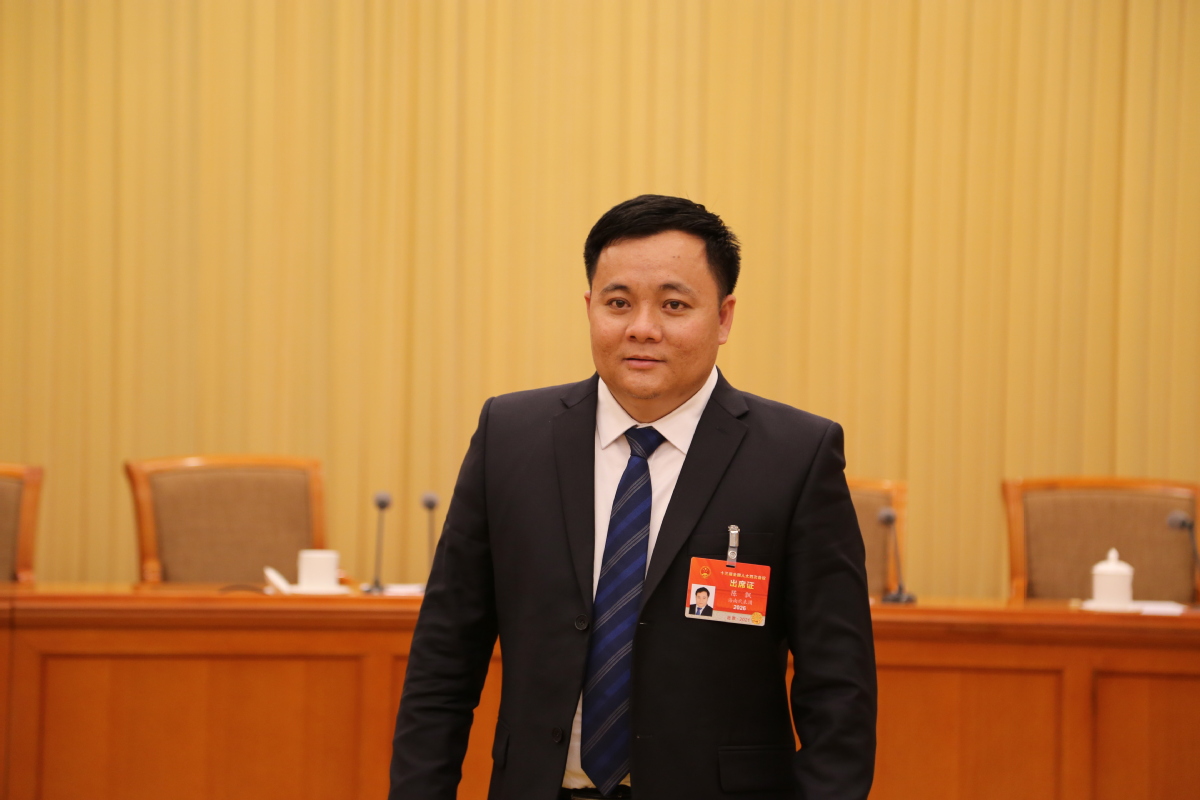NPC deputy focuses on rural vitalization


For this year, 34-year-old Chen Piao has worked out a busy schedule as secretary of the Muba village Communist Party of China branch in southeastern Hainan province.
He has a long list of duties that includes preparing a local plan in line with the provincial 14th Five-Year Plan (2021-25), helping farmers standardize the growing of tropical fruits and developing agro-tourism businesses to ensure higher income and happier lives for his 2,800 villagers, all of whom belong to the Li ethnic group, the original inhabitants of Hainan Island.
As a National People's Congress deputy from Hainan, Chen said that during this year's two sessions he will make proposals on advancing local transportation infrastructure and integrating land resources, both of which he believes are important in local rural vitalization.
Muba, part of Lingshui Li autonomous county in the southeast of Hainan Island, boasts 400 hectares of mango trees that supply nearly 80 percent of the villagers' income.
"We are thinking of creating a mango-picking business for tourists to help stabilize and expand the incomes of the people," said Chen, who has worked in rural areas in Hainan since 2012.
Lingshui, Chen's native county, is located in the Sanya tourism economic area, which attracts tens of millions of domestic and foreign tourists every year.
"If we cultivate the mango-picking business for tourists, our farmers will earn more money, maybe double the income they had before,"Chen said.
Recent investigations have led him to tackle the issue of the local transportation infrastructure.
"Better roads and transportation services in the greater Sanya tourism economic area will contribute to the development of local rural tourism," he said.
Chen, who in 2009 graduated from Shijiazhuang University of Economics in Hebei province with a computer technology degree, left his well-paid job in Guangzhou, Guangdong province, in 2012 and passed the examination for village officials in Hainan, aiming to do something for his hometown.
In 2016, the year before Chen became the Party branch secretary of Muba, a former village official was punished for engaging in fraud involving poverty relief materials, a case that caused a loss of confidence in the village leadership.
On Chen's first day in office, he called a meeting and announced three rules: All village affairs should be made public; villagers must be allowed to vote on major issues; and information on the use of funds must be released regularly. The pragmatic measures gradually won the trust and support of the locals.
Now, Chen is looking further. He has been thinking about the coming market competition between locally grown and imported farm produce when the special "zero tariff" policy takes effect by 2025 at the Hainan Free Trade Port, which covers the whole island.
"Standardized production management and deep processing of mango and other tropical fruits was an urgent concern," he said.
Chen added that the village leadership in Muba is considering turning local land resources into quantifiable assets for the villagers to introduce social capital to help jointly promote rural vitalization.
He said there are many things that need to improve, citing the need for better protection of the environment and of the Li-style homes and culture, and for improved education and health services.
"The road ahead is full of challenges as there are many new things to learn and explore," Chen said. "I hope that the rural areas will implement high-quality development plans and introduce talent that can do professional work."
The NPC deputy said that he sees great potential for rural vitalization during the 14th Five-Year Plan period.
- Mount Qomolangma's foreign tourist number doubles in 2024
- Yuyuan Garden lights up with Year of the Snake lantern installations
- New dendrobium orchid species found in Sichuan
- People welcome the New Year across China
- China's railway trips expected to hit 11.5 million on New Year's Day
- Beijing: where ancient traditions meet modern marvels





































